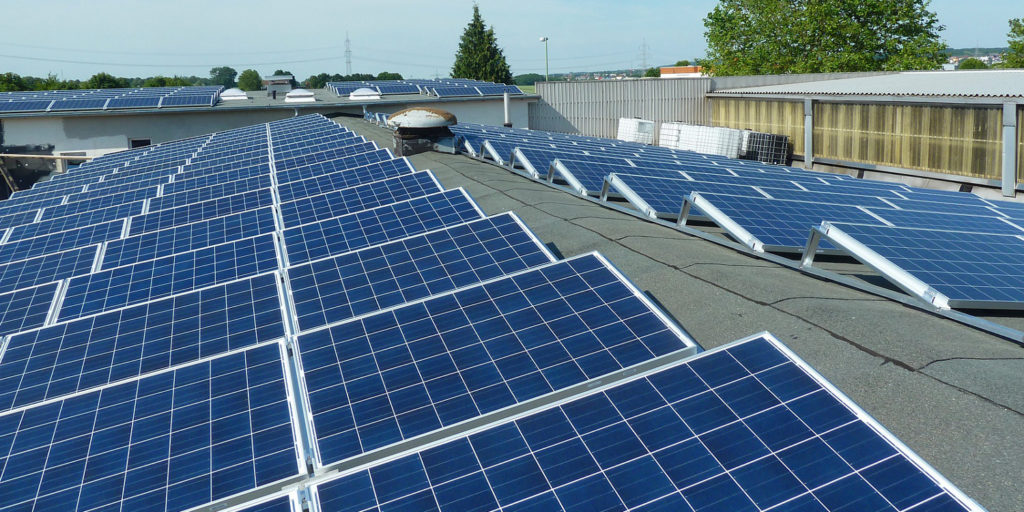The parties that form the German coalition government – the CDU, CSU and SPD – have agreed on a slightly reduced FIT cut for commercial and industrial, 40-750 kW rooftop PV projects.
According to a draft bill of the measure seen by pv magazine, the FIT cut will be implemented early in the new year but will be lower than previously planned, with the government having initially proposed it would fall to €0.0833/kWh.
In the revised draft, which will have to be approved on Friday by the German parliament, it is envisaged the FIT will be reduced to €0.0987/kWh from February 1, with further reductions, to €0.0939/kWh in March and €0.0890/kWh in April. That would add up to an overall reduction of 11% on the current tariff, rather than the 20% originally proposed.
For this month, December and January, the German Federal Network Agency had already determined a digression of 1% – based on newly installed PV capacity deployed in previous months. The current FIT value for commercial and industrial rooftop PV is €0.1057/kWh. In December it will fall to €0.1047/kWh, and in January €0.1036/kWh.
The nation’s Federal Ministry of Economics had originally planned to reduce the FIT, at the turn of the year, to the level of ground-mounted systems, which will be entitled to €0.0833/kWh from New Year’s Day.
After the parliament’s Economic Committee issues its recommendation on the measure, parliament is expected to approve the bill on Friday.
Following publication of the first draft at the end of October, when the industry was surprised by the strong cuts planned, there were numerous responses. Solar energy institute the ZSW said the planned reduction was based on false calculations. The ministry had claimed the solar C&I segment was getting too much support, and EU regulations made the FIT reduction necessary.
This content is protected by copyright and may not be reused. If you want to cooperate with us and would like to reuse some of our content, please contact: editors@pv-magazine.com.




By submitting this form you agree to pv magazine using your data for the purposes of publishing your comment.
Your personal data will only be disclosed or otherwise transmitted to third parties for the purposes of spam filtering or if this is necessary for technical maintenance of the website. Any other transfer to third parties will not take place unless this is justified on the basis of applicable data protection regulations or if pv magazine is legally obliged to do so.
You may revoke this consent at any time with effect for the future, in which case your personal data will be deleted immediately. Otherwise, your data will be deleted if pv magazine has processed your request or the purpose of data storage is fulfilled.
Further information on data privacy can be found in our Data Protection Policy.